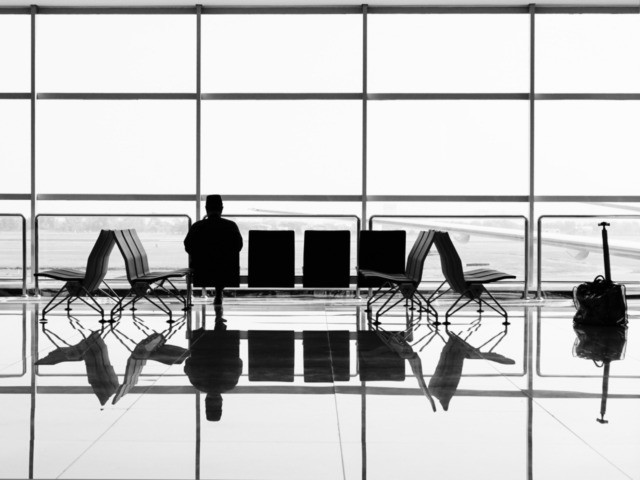Teen climate activist Greta Thunberg’s campaign to make people feel “flight shame” if they travel by plane has led to the reduction of bookings in her native Sweden. Now the U.S. airline industry is worried that the trend could take hold in this country.
The Los Angeles Times reported on this development:
The Swedish teenager, who has been vocal about combating climate change, may have played a role in a recent 4 percent drop in the number of commercial passengers flying in Sweden, where the term “flygskam,” or flight shame, has gained popularity.
Some U.S. airline executives are now expressing concern that the same guilt could take hold in the U.S., prompting American travelers to think twice before buying an airline ticket.
Robin Hayes, chief executive of New York-based JetBlue Airways, told industry analysts during a conference call recently that it’s only a matter of time before Americans follow the lead of their Swedish counterparts to find more environmentally friendly alternatives to commercial air travel.
“This issue presents a clear and present danger, if we don’t get on top of it,” Hayes said in the Times report. “We’ve seen that in other geographies and we should not assume that those sentiments won’t come to the U.S.”
The Times reported young travelers who have bought into the climate change apocalypse scenario will be the demographic traveling in the future.
“Today’s environmentally focused 22-year-old is tomorrow’s 35-year-old frequent business traveler,” Henry Harteveldt, a travel industry analyst with the Atmosphere Research Group, said in the article. “The industry wants to make sure everyone, regardless of age, knows what they are doing.”
The Times cites statistics from the globalist International Council on Clean Transportation, which claims the U.S. represents about a quarter of the world’s passenger flight emissions.
And yet the Times also reports that air travel has grown over the past decade, up five percent each year until 2019 when it dropped to a four percent increase. Demand for airline seats in the U.S. has grown four percent each year, “thanks to a strong economy and low fuel prices that result in relatively cheap air fares.”
“If global passenger demand continues to grow at the same pace, CO2 emissions from air travel will triple by 2050, according to an estimate by the International Civil Aviation Organization, the aviation branch of the United Nations,” the Times reported.
Citigroup told the Times that “flight shaming” is a real threat to the airline industry and that the cost of carbon offset programs — such as planting trees— should they embrace them, could cut industry profits by 44 percent by 2025.
The Times reported on the U.S. airlines that are hoping if they embrace the climate change agenda passengers will keep flying.
In January, JetBlue said it wants to become carbon neutral on all domestic flights starting July 2020, and to use an alternative fuel source for flights originating in San Francisco.
Delta Air Lines announced in December that it plans to buy ten million gallons per year of advanced renewable bio fuels from Gevo, a Colorado-based company.
“The announcement came only two months after Delta made a $2-million investment in another bio-fuel company in Arizona for a feasibility study of a facility to produce ‘sustainable aviation fuel and other biofuel products’ in Washington state,” the Times reported.
And the nation’s largest carrier, American Airlines, created a new top management position to run the company’s “sustainability program.”
Follow Penny Starr on Twitter

COMMENTS
Please let us know if you're having issues with commenting.